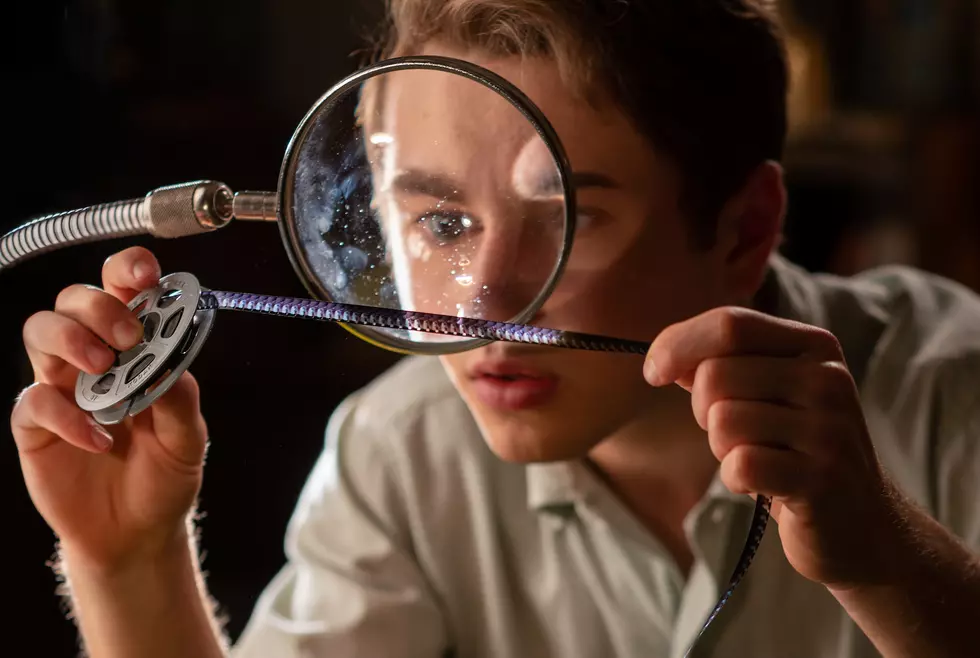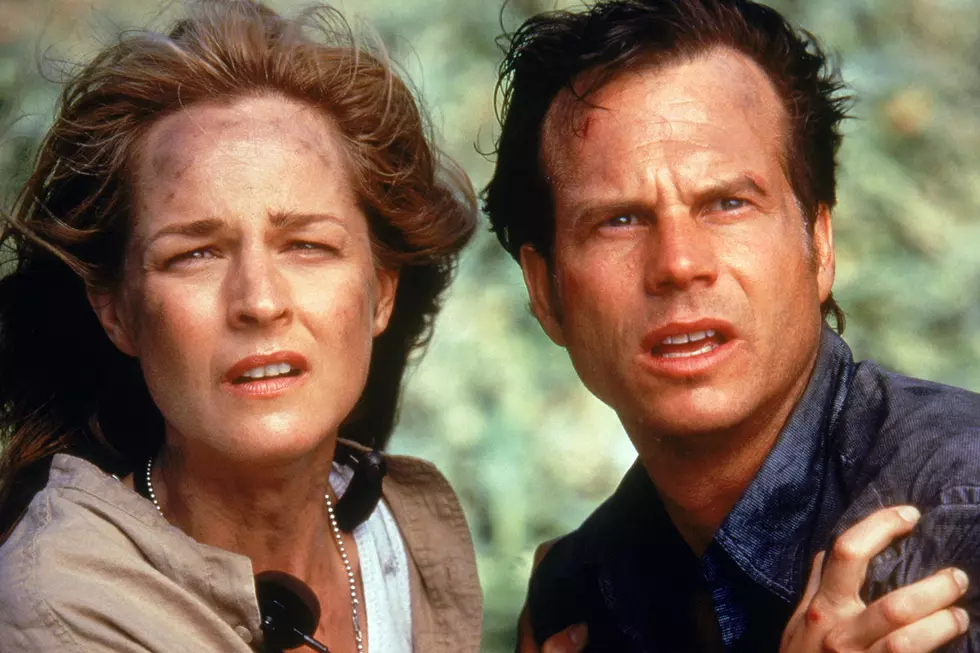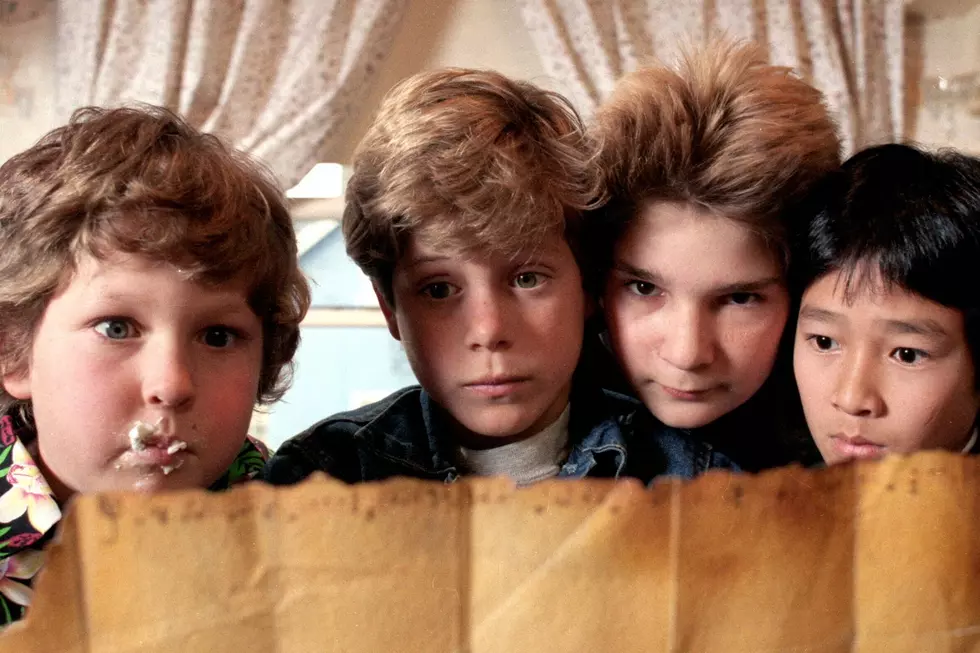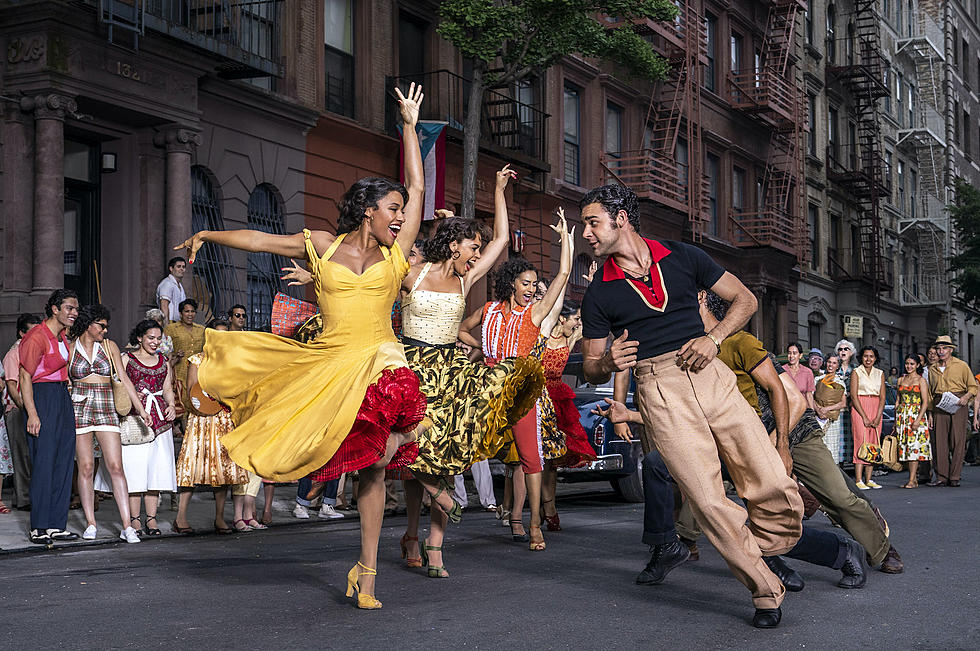
‘The Fabelmans’ Review: Steven Spielberg Tells His Own Story
Every movie lover has an origin story; the moment they realized the awesome power and alchemical magic of cinema. The Fabelmans begins with Steven Spielberg’s. Steven — Sammy in the film — is taken by his parents on his first trip to the movie theater, where they watch Cecil B. DeMille’s The Greatest Show on Earth. A nervous Sammy watches in horror, then mouth-agape fascination, as a pair of circus trains collide. To 2022 adult eyes, the crash effects are crude and the illusion is flimsy. To Sammy in 1952, it really is the greatest show on Earth.
On the ride home, Sammy’s parents debate whether the movie was too scary for him. Sammy says nothing, and that night he goes to bed dreaming of trains. Then Spielberg — the director presenting these scenes, not the little boy up on the screen — smash cuts to Sammy screaming for his mom at the top of his lungs. We assume The Greatest Show on Earth has given Sammy the greatest nightmare on Earth. No. Sammy is ebullient, jumping in bed. He knows what he wants for Hanukkah: A train set. He recreates the crash scene from The Greatest Show on Earth with his train over and over until his mother gives him the family’s 8mm camera to shoot his own version of the sequence. She thinks that will get it out of his mind, or at least encourage him to stop smashing this very expensive toy around.
Not quite. Instead, Sammy transferred his interest from the train to the camera. Once he did, he never let it go. And what is most impressive about The Fabelmans is you can tell that some 70 years later, the real Steven Spielberg remains equally besotted with movies. He’s learned a lot about how to make them since 1952; how to use image and sound to bring people joy, empathy, terror, and understanding. But he has never lost sight of the why.
The Fabelmans — that name was certainly not chosen at random — follows Sammy from that tender age when he first discovered movies (where he’s played by Mateo Zoryon Francis-DeFord) into his teenage years (when he morphs into Gabriel LaBelle). As Sammy’s interest in film blossoms, his parents’ marriage slowly dissolves. The film boasts no larger story than that, nor does it need one, because Spielberg observes and documents the lives of the Fabelmans with such warmth and clarity. Through Sammy’s eyes (and often his camera lens) we observe the love, but also the distance, between his mother Mitzi (Michelle Williams) and his father Burt (Paul Dano).
That very first scene at The Greatest Show on Earth establishes their complex dynamic. Spielberg frames his parents’ pep talk in line outside The Greatest Show on Earth with Sammy caught between Burt on the left and Mitzi on the right. Burt is all left-brain pragmatism. Like Spielberg’s real father, he is a pioneer in the field of computing. He calms a nervous Sammy about his first moviegoing experience by explaining how a film projector work. Mitzi is all right-brain whimsy. She’s an adventurous and free-spirited artist; she tells Sammy not to worry because movies are dreams.
The sequence outside that theater is one of so many examples in The Fabelmans where Spielberg fuses his memories (which were compiled into a script by Spielberg and Tony Kushner) and his preternatural talent for camera movement and framing to explore how our formative years are shaped by forces and choices that are out of our control and often beyond our comprehension. If Sammy had seen some other movie that day instead of The Greatest Show on Earth, would he have loved it just as much? If his parents hadn’t moved around the country so often, and Sammy had an easier time fitting in, would he have gravitated so strongly towards film as a means of connection? Did making movies bring Sammy closer to the people around him, or did it keep him at a remove from them, ever the observer, rarely the participant?
The Fabelmans finds Spielberg ruminating on those and other larger questions, including some about his own childhood. At least in Spielberg’s telling, his parents rarely fought, but also rarely related to one another in a meaningful way. Burt is always working; when he’s home, he often scolds Sammy about his blossoming obsession with his directing “hobby.” Mitzi nurtures Sammy’s creativity, and maintains a curiously affectionate relationship with the man Sammy and his three sisters call their “uncle” — Burt’s best friend and business partner Bennie (Seth Rogen), who follows the family on their move from New Jersey to Phoenix, mostly because Mitzi urges Burt to find a place for Bennie at his new job in Arizona.
All of the actors are sensational in these roles. Dano plays Burt as such an uptight and serious dweeb, that it’s easy to understand why a kid like Spielberg would gravitate toward his mother and away from his father, even though Dano also finds many places to show Burt’s total love and devotion for Sammy and the rest of the family. And Williams brings an incredibly believable physicality to Mitzi; the way she moves her arms as she whirls around the Fabelman kitchen, or watches in wordless astonishment at one of Sammy’s 8mm films feels so lived-in and authentic. And LaBelle shows impressive range as the teenage Sammy, as his story shifts back and forth between tragedy and comedy.
There are other wonderful supporting turns as well, including Jeannie Berlin as a classic Jewish grandmother, and Judd Hirsch as Mitzi’s Uncle Boris, who has lived the life of a transient artist — he claims to have worked in the circus and Hollywood —and who shows up at the Fabelmans’ door one day for a surprise visit. He delivers a monologue to Sammy that illuminates all of the film’s ideas about art and life — how the latter is impossible without the former, and how the former can make the latter impossible.
Spielberg once said his original concept for E.T. “didn’t include an extraterrestrial. It was going to be about how a divorce affects childhood, and how it really kids of traumatizes children. So the overarching theme was going to be about how do you fill the heart of a lonely child.” With The Fabelmans, Spielberg has essentially made his alien-less E.T. Instead of an adorable little creature, Sammy discovers moviemaking. (He even watches some of them in his bedroom closet, where E.T. was known to hide from Elliott’s mom.) And The Fabelmans is littered with little references and homages to Spielberg’s past movies, as well as to broader cinema history. A few years after The Greatest Show on Earth, Sammy goes to see John Ford’s The Man Who Shot Liberty Valance, which includes the famous line “When the legend becomes fact, print the legend.”
Is The Fabelmans fact or legend? I suspect it is a bit of both. Beyond the inclusion of Liberty Valance, Spielberg openly encourages the viewer to question his depiction of these events, most interestingly in a confrontation between Sammy and a high-school bully who Sammy has portrayed in one of his movies in a way they both know to be inaccurate. They have a surprising conversation where they struggle to express how they feel about each other and debate how much life is like the movies, and vice versa.
Steven Spielberg is now 75 years old. Both of his parents died in the last five years. His longtime collaborators aren’t spring chickens either. Composer John Williams is 90; editor Michael Kahn is 91. The art of motion pictures is even older, and sometimes it seems to be in very poor health. I hope Spielberg makes 20 more movies. But if this is the last one he ever directed, it would be the perfect career capper: An origin story, a thesis statement, a love letter, and a cautionary tale. Like life, it is hilarious at times, and pitifully sad at others. From the first scene to the last, it had me leaning forward in my seat like Sammy Fabelman at The Greatest Show on Earth.
RATING: 10/10
Every Steven Spielberg Movie, Ranked

More From 97 ZOK










